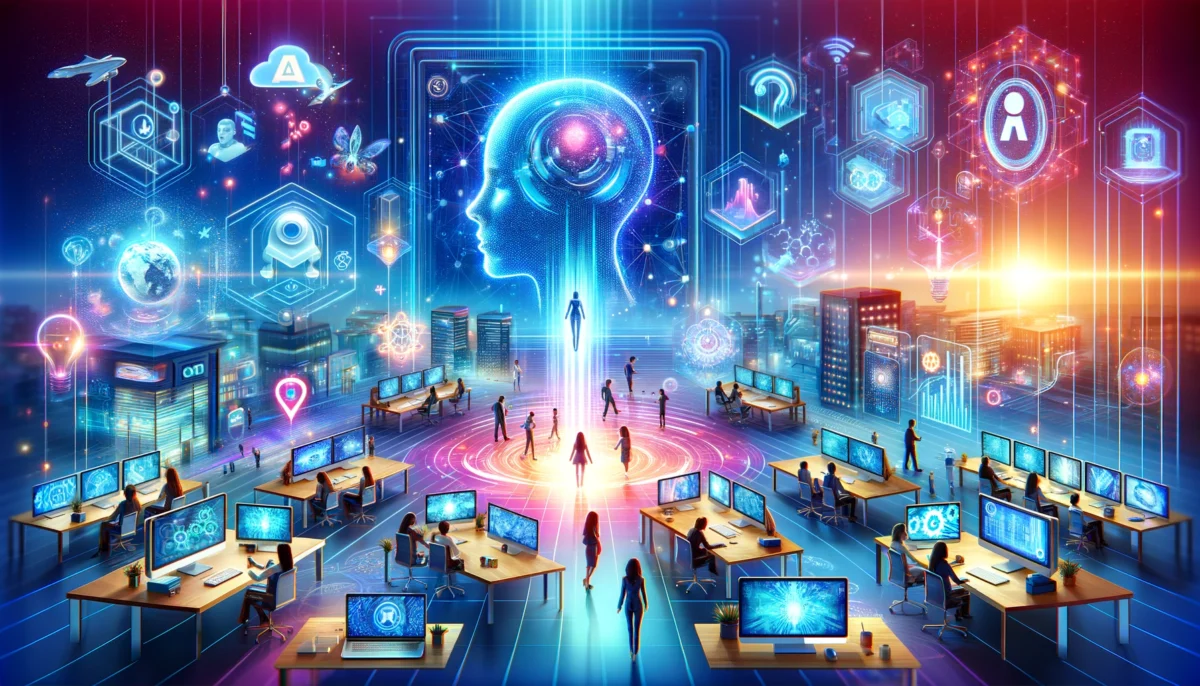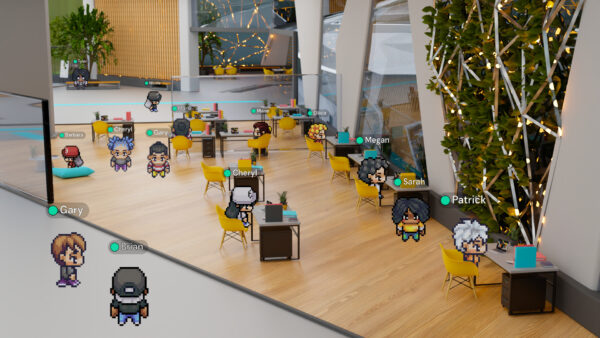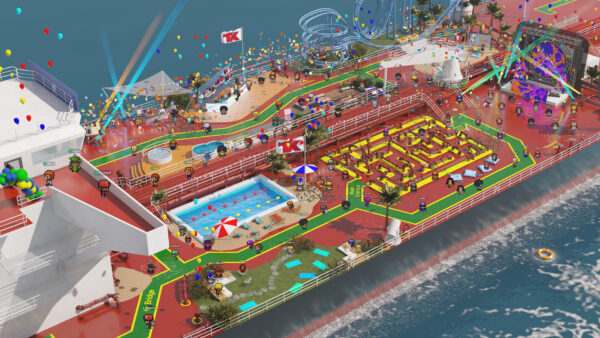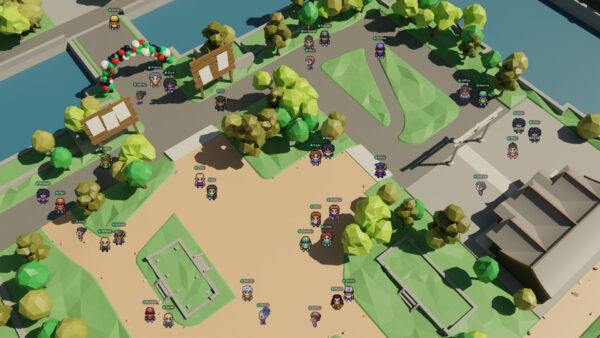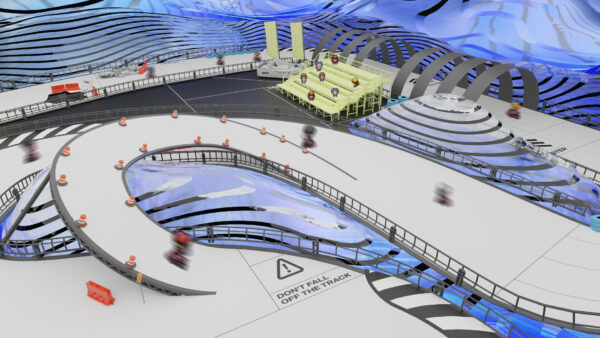Imagine stepping into a virtual world where the lighting matches the time of day, and a friendly assistant greets you with a personalized agenda. This isn’t science fiction anymore—it’s the power of artificial intelligence. The world is evolving at a breathtaking pace, and artificial intelligence is at the heart of this transformation.
Developments in AI will profoundly impact our work and the virtual environments we create. As a company immersed in architecting virtual spaces, we recognize the importance of staying up-to-date with advancements in the field. Whether it’s creating more realistic environments, intelligent characters, or personalized experiences, AI is set to make virtual spaces more immersive and dynamic than ever before.
Personalized and Adaptive Environments
Picture a virtual workspace that knows your preferences, adapts to your work style, and anticipates your needs. It’s like having an office that reads your mind (but not in a creepy way).
According to a study by Accenture, personalization in virtual environments significantly enhances user engagement and productivity by tailoring the digital experience to individual preferences and behaviors. AI can analyze user behavior to offer remarkable levels of personalization. It can adjust the virtual setting to suit your mood, recommend the best tools for your tasks, and ensure a customized experience that evolves with you.
Intelligent Virtual Assistants
AI-driven virtual assistants are set to become essential in virtual spaces. These assistants can provide real-time support, guide users through complex environments, and automate routine tasks. Imagine a virtual conference where an AI assistant schedules your meetings, sends reminders, and suggests relevant sessions based on your interests. It’s like having that one super-organized friend who never forgets your birthday and always knows the perfect gift. This support can make virtual events more efficient and enjoyable, offering a seamless experience from start to finish.
Enhanced Collaboration Tools
The future of virtual collaboration is looking bright. A study by Deloitte predicts that AI-driven collaboration tools will be standard in virtual workspaces by 2030. These AI-powered tools will enhance communication and teamwork. For instance, cases of real-time language translation have already become relatively common. This allows global teams to work together without language barriers. AI can also facilitate smart scheduling by automatically finding optimal meeting times across different time zones and managing calendar conflicts, making global collaboration smoother.
Immersive Learning Experiences
AI can transform virtual learning spaces by offering personalized tutoring, interactive simulations, and real-time feedback. AI tutors can tailor learning modules to individual needs, improving comprehension and retention. In virtual training environments, AI can simulate real-world scenarios, providing hands-on experience in a safe setting. In virtual hackathons, advanced brainstorming tools can analyze discussions and suggest innovative ideas, boosting creativity and problem-solving. The possibilities for elevating learning experiences are endless.
Future Visions: AI and Virtual Spaces
Predictive analytics in virtual spaces can offer insights into user behavior and preferences, allowing environments to adjust proactively. User engagement can be monitored and real-time adjustments can be made to optimize the experience. For instance, AI analytics can indicate that participants are losing focus in a virtual meeting space (we’ve all been there), encouraging re-engagement of attendees.
As a design-driven company, we’re excited to see how artificial intelligence will revolutionize the creation process of virtual spaces. AI has already demonstrated the ability to generate 3D models, create immersive virtual tours, and automate the customization of environments. While the desired quality isn’t quite there yet, this capability promises to speed up the process while maintaining the high quality and personalization of our virtual spaces.
The integration of AI in design simplifies the production workflow, reduces costs, and makes it easier to implement changes and amendments throughout the year. As the tech advances, we can expect even more sophisticated content creation tools, enhancing cost-efficiency and scalability, and making it simpler to build and modify virtual spaces.
The Future is Now: Embracing AI in Virtual Spaces
The fusion of artificial intelligence and virtual spaces promises a future where digital environments are not just functional but also intelligent and deeply personalized. While Space Makers continues to explore these advancements, we envision a world where AI plays a crucial role in creating smarter, more adaptive virtual environments that meet users’ evolving needs—and might even give you a virtual high-five when you need it.
Join Us on the Journey
At Space Makers, we are excited about the potential of AI to transform the way we interact with virtual spaces. We invite you to join us on this journey as we explore the limitless possibilities of virtual environments. Follow Space Makers for the latest insights and updates as we strive to build the future of digital interactions and set new standards in the virtual world. Who knows, maybe we’ll even get AI to do our laundry someday.
